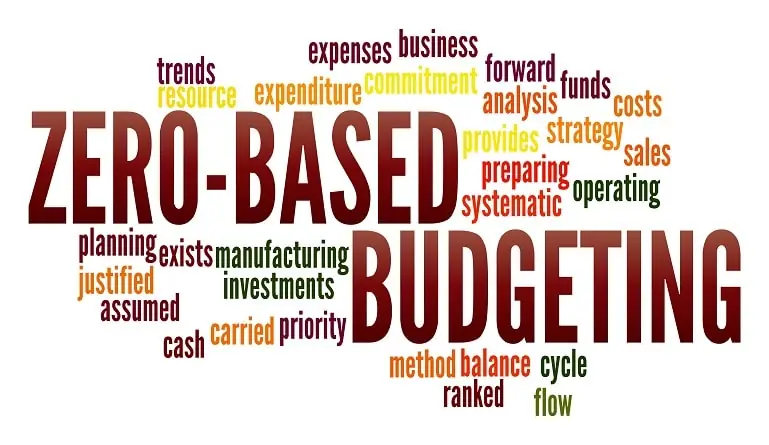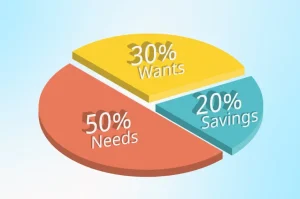Zero-Based Budgeting (ZBB) is a powerful financial tool that can transform the way you manage your money. Unlike traditional budgeting methods, ZBB starts from scratch each month, assigning every dollar a specific purpose. If you’ve found yourself overwhelmed by financial uncertainty or struggling to make meaningful progress on your financial goals, ZBB could be the game-changing solution you’ve been searching for. This guide is designed to help you understand the principles of zero-based budgeting, its benefits, and how to apply it effectively to master your finances.
The Benefits of Zero-Based Budgeting
Zero-based budgeting offers a unique approach to personal finance that can lead to greater clarity, control, and peace of mind. By allocating every dollar to a predetermined category, you make deliberate and intentional financial decisions. This can help eliminate wasteful spending, ensuring that every dollar you earn works efficiently toward your goals.
Another significant benefit of ZBB is its ability to align your spending with your personal values. Whether you want to save for retirement, eliminate debt, or travel the world, this budgeting method empowers you to prioritize what’s most important to you. Additionally, ZBB fosters mindfulness about your spending habits, revealing areas where your money isn’t being used effectively and offering opportunities to reallocate funds to things that truly matter.
For families and individuals alike, ZBB can be a unifying tool to achieve shared goals. With everyone on the same financial page, progress becomes not only measurable but deeply motivating. Furthermore, consistent application of ZBB over time can result in better financial health, reduced stress, and a stronger sense of financial security.
How to Implement Zero-Based Budgeting
Implementing zero-based budgeting requires commitment and consistency, but the process itself is simple to follow. Begin by calculating your total monthly income. This includes your salary, side hustle earnings, freelance gigs, or any other sources of income.
Next, list out all your monthly expenses. Be as detailed as possible, factoring in fixed costs like rent or mortgage payments, utilities, insurance, and loan repayments, and variable expenses such as groceries, dining out, and entertainment. Don’t forget to include savings and investing categories, as ZBB encourages you to treat these as essential allocations rather than optional decisions.
Allocate every dollar of your income into these categories until you reach zero. Each dollar should have a purpose, whether it’s covering bills, indulgences, or future savings. By zeroing out your budget, you achieve financial efficiency, leaving no room for untracked spending or aimless money.
Monitoring and adjusting your budget throughout the month is crucial to the success of ZBB. Life is unpredictable, and unexpected expenses can arise. The flexibility of zero-based budgeting allows you to reassign funds from one category to another as needed, ensuring that your financial plan evolves with your circumstances.
Challenges and Solutions
Like any financial tool, ZBB comes with its own set of challenges. For first-time users, the greatest hurdle is often the level of commitment required. Having to account for every single dollar can feel tedious at first, and sticking to the budget requires ongoing attention. One way to overcome this is to simplify the process initially. Start with broader spending categories, grouping similar expenses together. Over time, as you become more comfortable with the ZBB process, you can introduce more granularity.
Another common challenge arises from unexpected expenses. Medical emergencies, home repairs, or car trouble can derail even the most meticulous budget. To address this, allocate a portion of your income toward an emergency fund each month. This ensures you’re financially prepared for the unexpected while keeping your primary budget intact.
Minimizing the impact of emotional spending is another potential obstacle. Many people approach budgeting with good intentions, only to find themselves indulging in impulse purchases. Combat this by leaving room for “fun money” in your budget. Giving yourself a small allowance for discretionary spending allows you to enjoy life guilt-free without compromising your financial goals.
Real-Life Examples
To better understand how ZBB works, consider the case of Amanda, a freelance graphic designer. Amanda had inconsistent income and often struggled to save money or pay off her credit card debt. After switching to zero-based budgeting, she started by tracking her average monthly income over the past six months. She then created a budget that accounted for irregular expenses, savings, and debt repayment. Within a year, she paid off her credit card debt and saved enough money to take a vacation she’d been putting off for years.
Another example is a young family, the Robertsons, who wanted to save for a down payment on a home. With ZBB, they became acutely aware of how much money they were spending on dining out and unused subscriptions. By reallocating funds from these categories to their “Home Savings” category, the Robertsons cut unnecessary expenses and accelerated their savings significantly.
Advanced Strategies
Once you’ve mastered the basics of zero-based budgeting, there are advanced strategies you can employ to take your budgeting game to the next level. One such strategy is implementing a “sinking fund” approach, where you set aside small amounts each month for large, irregular expenses. For example, if you know you’ll need $1,200 for holiday gifts, allocate $100 per month for this purpose.
Additionally, leverage technology by using advanced budgeting apps and software tailored for zero-based budgeting. These tools can automate much of the tracking process, providing real-time insights into your financial health.
You can also align your zero-based budgeting efforts with other financial principles, such as the 50/30/20 rule. This hybrid approach involves allocating 50% of your income to needs, 30% to wants, and 20% to savings and debt repayment. Adjusting these percentages within the ZBB framework can create a tailored plan unique to your lifestyle and ambitions.
Tools and Resources
To implement zero-based budgeting efficiently, using the right tools is essential. Apps like YNAB (You Need a Budget), EveryDollar, and Mint are excellent choices for beginners and experienced budgeters alike. These apps offer features such as expense tracking, goal setting, and financial reporting, which simplify the ZBB process and enhance its effectiveness.
Aside from budgeting apps, using spreadsheets can also provide a more hands-on approach. Platforms like Google Sheets or Microsoft Excel allow you to customize your budget entirely, ensuring that it reflects your individual needs and preferences. For those who enjoy detailed financial control, this approach provides unparalleled flexibility.
Lastly, consider leveraging educational resources to deepen your understanding of ZBB and personal finance. From financial literacy courses to blogs and podcasts, access to quality information can help refine your skills and inspire new strategies.
Building a Financial Foundation with Zero-Based Budgeting
Zero-based budgeting isn’t just a financial technique; it’s a mindset that empowers you to take command of your money and your life. By knowing exactly where every dollar is going, aligning spending with values, and adapting to challenges along the way, you can achieve financial clarity and confidence.
If you’re ready to revamp your finances, give zero-based budgeting a try. Whether it takes the form of a neatly organized spreadsheet or a robust budgeting app, the process offers a proven path for reaching your goals. Remember, financial security is not about how much money you make but how effectively you manage it.




